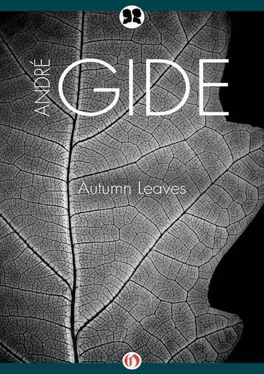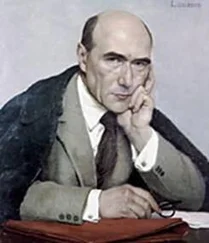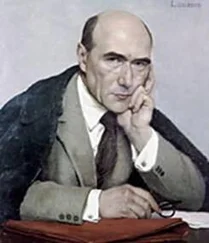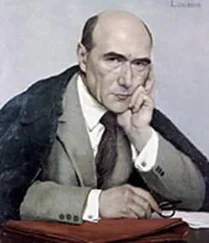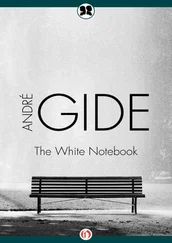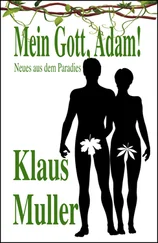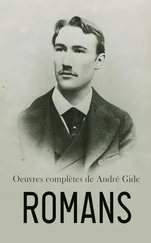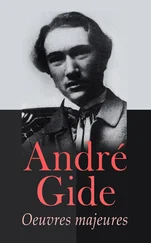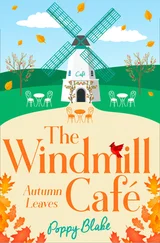I was a soldier at twenty
What misery
To make war
When one is a child.
To live in a hole
Against the earth
Pursued like a fool
By the war.
I wore out my heart
At the crucified crossroads
Oh to die on the plain
At the threshold of a sordid day.
I have known all the cries
Hate
Suffering long as a week
Hunger, cold, discomfort.
All my friends have died
One after the other
In some accursèd place
Our love lies buried.
Deceased Leguel the Parisian
Masse and Guillaumin d’Amiens
Pignatel called the Marseillais
All asleep forever.
They have been thrown into a hole
Any place at all
To speak of it makes my heart quiver
Oh how cruel is death.
My God was it worth the trouble
To suffer so
Weary I return as humble and naked
As a stranger.
Without joy, without honor
Grief in my heart
My eyes burnt out
With the shedding of tears.
He had returned the preceding May to the battle field where he had lived that nightmare. He related that in the last pages he wrote 1, which Vendredi had just published, and which, that very day, he had had me read. He was not satisfied with them and wanted to do them over. My only criticism of them was a too timid writing.
What I say of Dabit’s style is equally true of his life. As he never overrated himself and worried little about appearances, nothing in him disappointed you later, and a long association led you quickly to understand how much more he had than he seemed at first glance to promise. Since I had known him, my esteem for him had never ceased to grow; from each meeting, from each conversation with him, my friendship emerged deepened. I had then known him for a long time. He had timidly brought me his first manuscript, that he completed later, only with considerable effort. It was that of Petit Louis. As it was at that time, that writing scarcely satisfied me; but I found in it too many good points not to wish that Dabit could learn to bring them out better. I referred the manuscript still unfinished to Roger Martin du Gard who seemed to me better qualified than I to encourage and advise a personality very much like his own. I think I could not have done better and Dabit understood at once. He preserved a deep gratitude for the one who quickly became his friend. Perhaps, without Roger Martin du Gard, we would never have had Hôtel du Nord. Of what profit the lessons of his elder were to Dabit, Dabit himself never tired of repeating. The friendship and confidence manifested to him by Léopold Chauveau were, at that time too, of great assistance. Hôtel du Nord, as it finally issued from that combination of efforts, seemed to me a remarkable work. Please understand me: the book is in no way the result of collaboration. It is Dabit’s alone. But I believe that, without the advice and constant support of Martin du Gard, without the encouragement of Chauveau, it would not have been what it finally became. It had considerable success. As for me, I still prefer the Villa Oasis, which is talked of much less and which seems to me to have deeper significance; more disturbing too; for I feel keenly that, by its very subject matter, it is of such a nature as to embarrass certain supporters. Dabit realized it, but he was too honest to distort the truth for tendentious purposes. He reserved for himself the right to criticize; that is exactly why too, although a thorough communist at heart, he had refused to join the party. He could not refrain from judging those toward whom his love inclined him, and all the more severely as he would have liked to be able to approve them more. A wisdom like Montaigne’s, or Sancho Panza’s, put him on guard against fanaticisms. His devotion to the proletarian cause was all the more firm because it was not blind in any way. In the same manner he took care that friendship should not lead him into complacency. As for his critical articles in which he often gave proof of subtle wisdom, it happened that the most affectionate were also the most severe. I have seen him deeply and enduringly affected, afterwards, if the friend was wounded 1, for he had an extremely sensitive heart.
Eugène Dabit’s last writings are long studies on El Greco and Velasquez, that I have never read. He was greatly attached to them because he loved Spain and because he loved painting. A painter himself, he spoke of it competently. But he did not overrate himself, as I have said, and I have never known a painter or writer whose modesty was more sincere. Doubtless that is why he had so many friends. His smile was exquisite, reflecting a profound graciousness; a desire, a need to love. His voice was very soft, almost a whisper; in recent times, it was raised only when he spoke of the Popular Front in Spain, whose fate he took very much to heart. Every day he listened anxiously for Jef Last to translate for us the news of the situation as it was given by Pravda. Then our anxiety clashed with his optimism. He would not allow anyone to express the least doubt as to the final success of the government forces. But he doubtless insisted so loudly in order to protest against his own distress.…
I was going to say he “did not plume himself about anything”; but he did. Being an excellent swimmer, he was somewhat ticklish as to the superiority of his crawl and especially of “brasse coulée.” We were proud of him; but we teased him and amused ourselves by calling to his attention that young Soviet swimmers could, nevertheless, surpass him in speed. He then countered with a smile:
“Perhaps; but as for me, I have style.…”
Louis Guilloux, who teased him affectionately about his plebeian accent, had, from the first days of the trip, invented a byplay to which Dabit lent himself with the greatest good nature. The fun lay in the fact that it was repeated each day. Every day as Dabit thought of his bath, he announced:
“I am going to take my bath, …”
Then Guilloux:
“Why do you say ‘Take a bahth’?”
And Dabit, a little disturbed at first, then entering into the game:
“I did not say ‘bahth.’ I said ‘bath’ (and the a suddenly became light, sharp and flute-like).”
But Guilloux went on:
“How did you say it?”
“I said ‘bath’.” 1
Should I excuse myself for such a childish anecdote? It protests in its way against the stiffness of death.
The last time I saw Dabit, it was already from a distance (for we were not allowed to go near him), separated from him by the length of the huge room he occupied at the hotel in Sebastopol where we had put up five days before.
“I understand it’s going a little better,” I said to him. “The fever is down. (They had just taken his temperature. From 40.3 degrees the thermometer had fallen to 38.6 degrees. 1We hoped it was the turning point.)
“Yes,” he said, “it went down, but it is going up again now.”
His voice was veiled as though choked by tonsillitis. But he said that without showing great concern, and I like to think that he did not realize the seriousness of his condition either. In the shadow where the closed shutters kept him, I could scarcely distinguish his face, highly colored by sun-tan and fever. A wet cloth covered his forehead.… But I do not wish, I am unable to see him again without his gentle, tender smile, still full of youth and joy, as he was on the preceding days; as he shows himself in the large photograph of him he had given me in 1932, which I kept in my study above the table where I am writing, side by side with that of our mutual friend Martin du Gard, so that Dabit’s affectionate glance seems to welcome me when I enter that room once more.
Читать дальше
